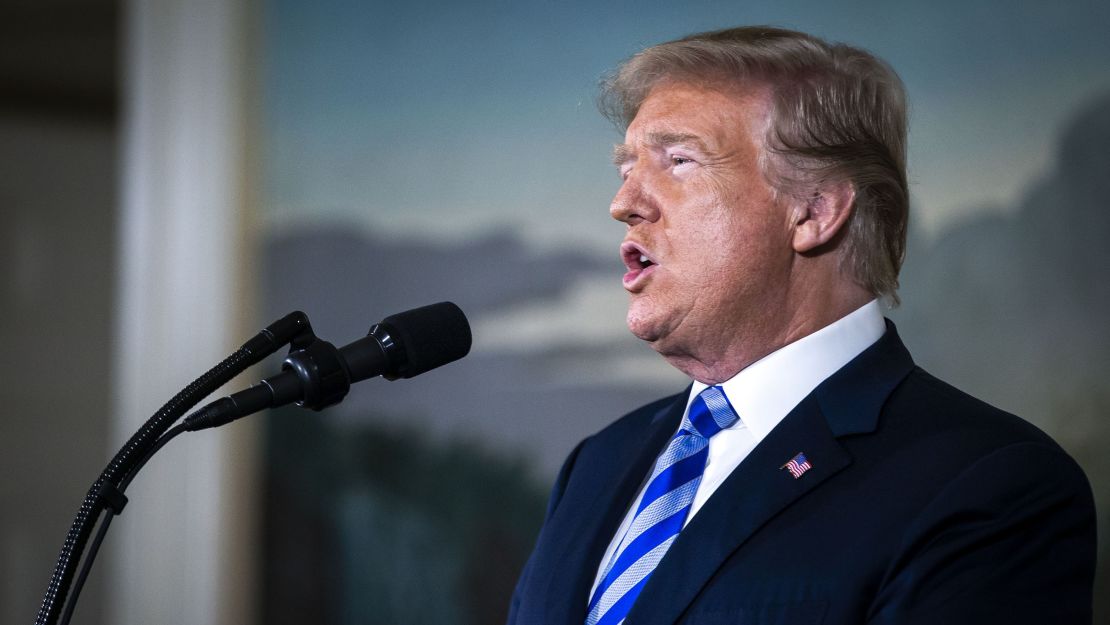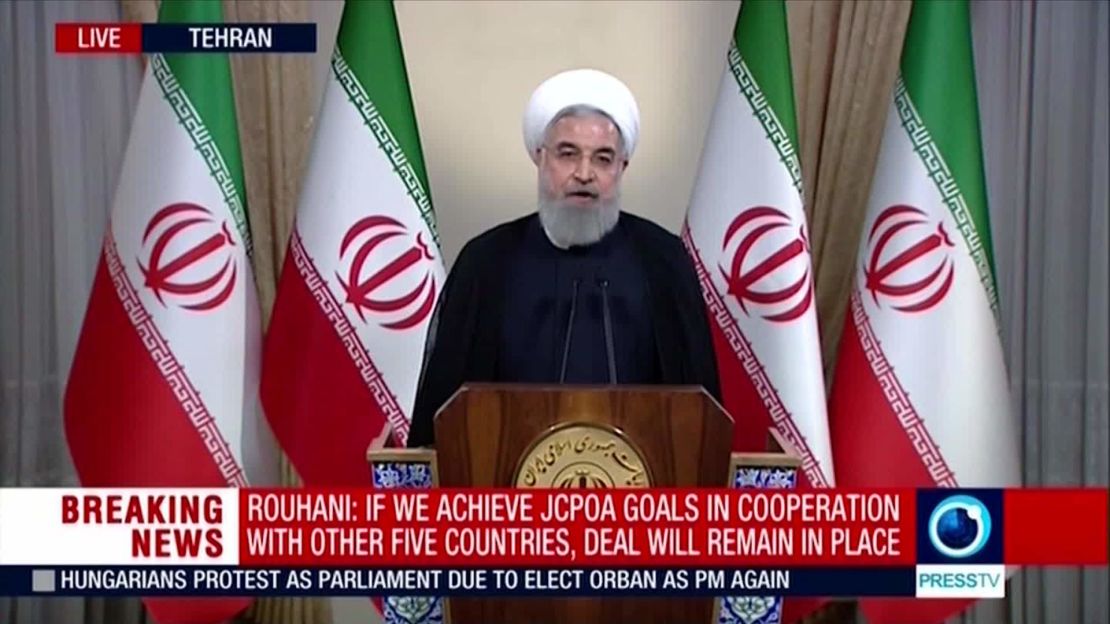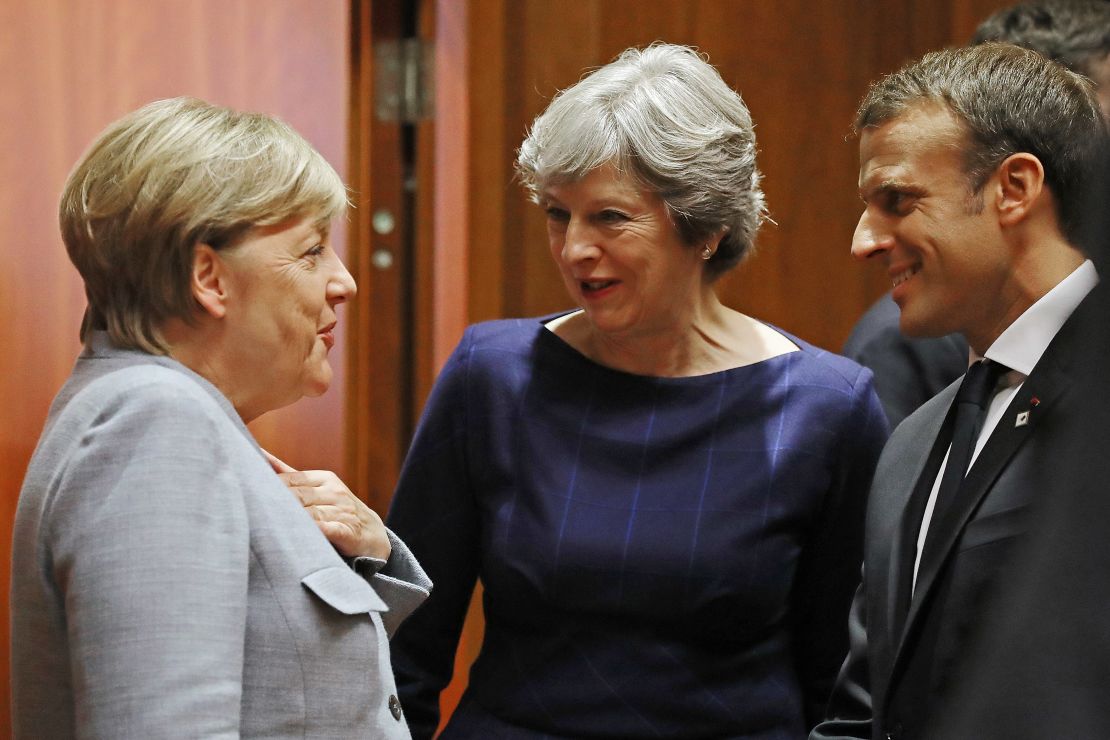US President Donald Trump has walked away from the Iran nuclear deal, breaking with allies in Europe and leaving the future of the agreement in doubt.
The Iran deal is complicated, as too are the potential consequences of Trump’s decision to pull out of it. To help you get up to speed, here are answers to some important questions.
What was in the agreement?
Officially titled the Joint Comprehensive Plan of Action, or JCPOA, the landmark agreement was intended to limit Iran’s nuclear program, thereby preventing it from developing nuclear weapons.
The deal, struck in Vienna following two years of intensive talks orchestrated by the Obama administration, was signed by Iran and six other nations in 2015.
Under the deal, the Iranian government agreed to three key things:
Reducing the number of its centrifuges by two-thirds (centrifuges are tube-shaped machines used to enrich uranium, the material necessary for nuclear power); slashing its stockpile of enriched uranium by 98%; and capping uranium enrichment at 3.67% – enough to continue powering parts of the country’s energy needs, but not enough to build a nuclear bomb.
In addition, Iran was required to limit uranium research and development, and allow inspectors from the International Atomic Energy Agency (IAEA) certain access to its nuclear facilities.
In return for its compliance, all nuclear-related sanctions on Iran were lifted in January 2016, reconnecting the country’s stagnating economy with international markets.

Why has the US pulled out of the agreement?
Conservative leaders in the US, especially Trump, have long been critical of the deal, calling it “insane.”
In announcing his decision to pull the US out of the agreement Tuesday, Trump described the deal as “horrible” and “one-sided,” maintaining that, even with the current restrictions in place, Iran continues to pose a threat to the US.
“It is clear to me that we cannot prevent an Iranian nuclear bomb under the decaying and rotten structure of the current agreement,” Trump said. “The Iran deal is defective at its core. If we do nothing we know exactly what will happen.”
Trump also said he would initiate new sanctions on the regime. Trump has previously rallied against the decision to lift sanctions, arguing that the lessening of economic pressure has provided a lifeline to the Iranian regime and emboldened the country’s hardliners – pointing to Iran’s ballistic missile tests as evidence of this.
Since coming into office, the US Secretary of State Mike Pompeo has backed Trump in coming out strongly against the agreement, calling Iran “the greatest sponsor of terrorism in the world.”
“We are determined to make sure it never possesses a nuclear weapon. The Iran deal in its current form does not provide that assurance,” said Pompeo on April 30.

How has Iran reacted?
Iranian President Hassan Rouhani said Iran will take a few weeks to decide how to respond to the US withdrawal.
Speaking live on television following President Trump’s announcement, Rouhani said Iran would abide by its commitments while it consults with the other signatories to the agreement.
However, Rouhani also said he had ordered the country’s “atomic industry organization to be fully prepared for subsequent measures if needed so that in case of need we will start our industrial enrichment without limitations.”

What about the other countries involved?
The agreement was signed by the five permanent members of the UN Security Council: The United States, the United Kingdom, France, Russia and China, plus Germany – and Iran. The accord was also enshrined in a UN Security Council resolution, incorporating it into international law.
Some of the US’ closest allies, the UK, France and Germany, issued a statement expressing “regret and concern” about the decision, emphasizing Iran’s compliance with the agreement and their “continuing commitment” to its principals. The leaders of those countries previously failed in their attempts to convince Trump to preserve the deal.
Russia meanwhile said the US’ decision was “new confirmation of Washington’s incompetence,” and underscored that the US, not Iran, is now technically in violation of the deal.
Israel, though not a signatory, has been a staunch opponent of the agreement from the beginning. Addressing reporters Tuesday, Israeli Prime Minister Benjamin Netanyahu pledged his full support for Trump’s decision to withdraw from the deal, thanking the president for his courage.
Saudi Arabia, another longstanding regional objector to the agreement, issued a statement Tuesday in support of Trump’s withdrawal from the agreement and the reinstatement of economic sanctions. Saudi Arabia has previously warned it will pursue nuclear weapons if Iran does the same.
What happens next?
Experts believe that, should Iran choose to resume the enrichment of uranium, it could build a bomb within about a year.
The sanctions, meanwhile, could take months to go into effect as the US government develops guidance for companies and banks.
According to a fact sheet issued by the White House, “those doing business in Iran will be provided a period of time to allow them to wind down operations,” and those that don’t “risk severe consequences.”
Western airlines, carmakers, hotel groups and oil companies all jumped to sign deals in Iran. The country’s oil sector boomed and the economy grew. Such enterprises could now turn into huge losses – and this could hit consumers in the West.
Iran is the world’s fifth-biggest oil producer. After sanctions were lifted in 2016, the country ramped up its oil production by one million barrels per day.
At least some of that oil will now be pulled from the market — at a time when oil prices are already rising. This could push up prices at the pump.
“It will be more painful for motorists than the past two years — but nothing close to 2011 to 2014 when it was $3.40 to $3.60 a gallon,” said Tom Kloza, global head of energy analysis at OPIS.
Could a new deal be secured?
Trump said Tuesday he was open to finding diplomatic means to address his concerns about the missile program and Tehran’s support for militant groups, leading to the possibility of further negotiations between US allies on a side agreement.
But even if a new agreement is struck, it’s not clear how they would convince Iran to sign on, or whether Russia and China – two other partners to the deal – would agree.
CNN’s Kevin Liptak, Nicole Gaouette, Tim Lister, Greg Botelho, Charles Riley and Julia Horowitz contributed to this report.


